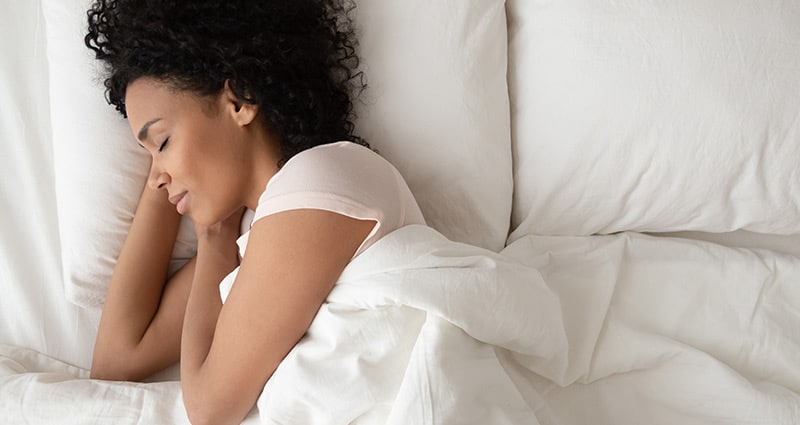Adults, ages 18-60, should get at least seven hours of sleep per night, according to the Centers for Disease Control and Prevention. Most adults get less.
While many people don’t get enough sleep because they simply stay up too late, more than 50 million Americans have chronic sleep disorders. These sleep disorders can make it difficult or even impossible for them to get the recommended hours of sleep, even when they go to bed early.
To cope with their sleep disorders, some people turn to sleep aids to help them fall asleep and stay asleep at night.
What Are Common Sleep Aids?
Getting enough sleep is a common desire for many adults. So there’s a market for sleep medication. Some common forms of sleep aids include:
- Melatonin – This is a natural hormone produced in the pineal gland of the brain. Its production increases at night, which contributes to making people feel sleepy.
- Diphenhydramine – This is an antihistamine found in many allergy medications, and it’s the reason they cause people to feel drowsy after taking them.
- Doxylamine – This is also a sedative-effect-producing antihistamine that is often included in pain- and fever-relieving medications.
- Valerian – This is an herb often sold as “valerian root” and marketed as a sleep aid. Its effects on sleep aren’t fully understood, but it may interact with GABA, serotonin, and adenosine receptors to help people sleep.
Are Sleep Aids Safe?
While nonprescription sleep remedies are not meant for long-term use, they may be fine to use sparingly during particularly restless nights.
However, even short-term usage of over-the-counter sleep aids can cause health problems such as:
- Melatonin is linked to depression, dizziness, excessive daytime sleepiness, headache and nausea.
- Diphenhydramine is linked to dizziness, loss of appetite, nausea, vomiting and muscle weakness.
- Doxylamine is linked to chest congestion, drowsiness and dry mouth/throat/nose.
- Valerian is linked to headache, upset stomach, mental dullness, strange dreams and daytime drowsiness.
Are There Effective Alternatives to Using Sleep Aids?
Good sleep habits can help promote restful sleep. They include:
- Going to bed and getting up at the same time every day.
- Keeping your bedroom quiet, dark, relaxing and at a cool temperature.
- Removing electronic devices from your bedroom.
- Avoiding large meals, caffeine and alcohol before bedtime.
- Exercising during the day.




